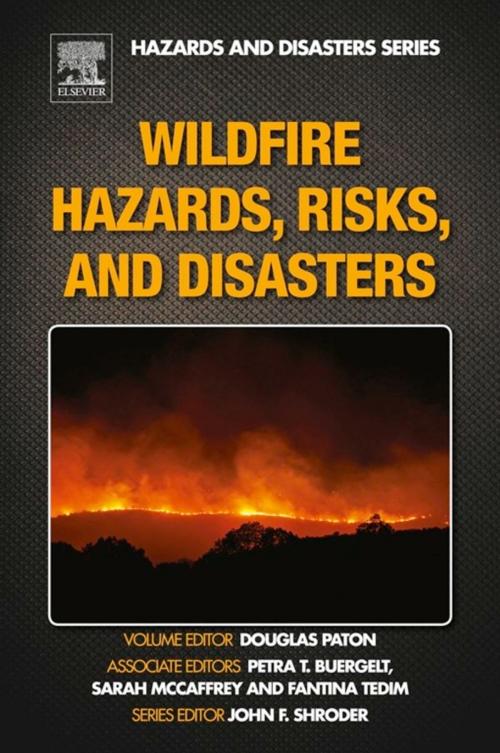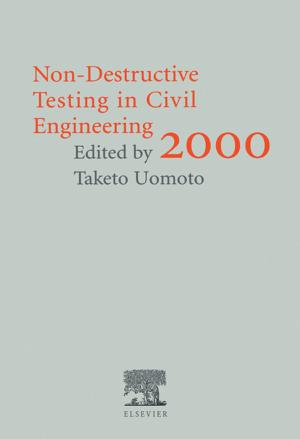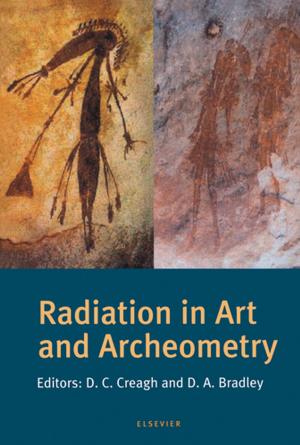Wildfire Hazards, Risks, and Disasters
Nonfiction, Science & Nature, Nature, Environment, Natural Disasters, Science, Biological Sciences, Environmental Science| Author: | John F. Shroder | ISBN: | 9780124096011 |
| Publisher: | Elsevier Science | Publication: | October 20, 2014 |
| Imprint: | Elsevier | Language: | English |
| Author: | John F. Shroder |
| ISBN: | 9780124096011 |
| Publisher: | Elsevier Science |
| Publication: | October 20, 2014 |
| Imprint: | Elsevier |
| Language: | English |
More than 90% of wildfires are caused by human activity, but other causes include lighting, drought, wind and changing weather conditions, underground coal fires, and even volcanic activity. Wildfire Hazards, Risks, and Disasters, one of nine volumes in the Elsevier Hazards and Disasters series, provides a close and detailed examination of wildfires and measures for more thorough and accurate monitoring, prediction, preparedness, and prevention. It takes a geo-scientific and environmental approach to the topic while also discussing the impacts of human-induced causes such as deforestation, debris burning and arson—underscoring the multi-disciplinary nature of the topic. It presents several international case studies that discuss the historical, social, cultural and ecological aspects of wildfire risk management in countries with a long history of dealing with this hazard (e.g., USA, Australia) and in countries (e.g., Taiwan) where wildfire hazards represent a new and growing threat to the social and ecological landscape.
- Puts the contributions of environmental scientists, social scientists, climatologists, and geoscientists at your fingertips
- Arms you with the latest research on causality, social and societal impacts, economic impacts, and the multi-dimensional nature of wildfire mitigation, preparedness, and recovery
- Features a broad range of tables, figures, diagrams, illustrations, and photographs to aid in the retention of key concepts
- Discusses steps for prevention and mitigation of wildfires, one of the most expensive and complex geo-hazards in the world.
More than 90% of wildfires are caused by human activity, but other causes include lighting, drought, wind and changing weather conditions, underground coal fires, and even volcanic activity. Wildfire Hazards, Risks, and Disasters, one of nine volumes in the Elsevier Hazards and Disasters series, provides a close and detailed examination of wildfires and measures for more thorough and accurate monitoring, prediction, preparedness, and prevention. It takes a geo-scientific and environmental approach to the topic while also discussing the impacts of human-induced causes such as deforestation, debris burning and arson—underscoring the multi-disciplinary nature of the topic. It presents several international case studies that discuss the historical, social, cultural and ecological aspects of wildfire risk management in countries with a long history of dealing with this hazard (e.g., USA, Australia) and in countries (e.g., Taiwan) where wildfire hazards represent a new and growing threat to the social and ecological landscape.
- Puts the contributions of environmental scientists, social scientists, climatologists, and geoscientists at your fingertips
- Arms you with the latest research on causality, social and societal impacts, economic impacts, and the multi-dimensional nature of wildfire mitigation, preparedness, and recovery
- Features a broad range of tables, figures, diagrams, illustrations, and photographs to aid in the retention of key concepts
- Discusses steps for prevention and mitigation of wildfires, one of the most expensive and complex geo-hazards in the world.















